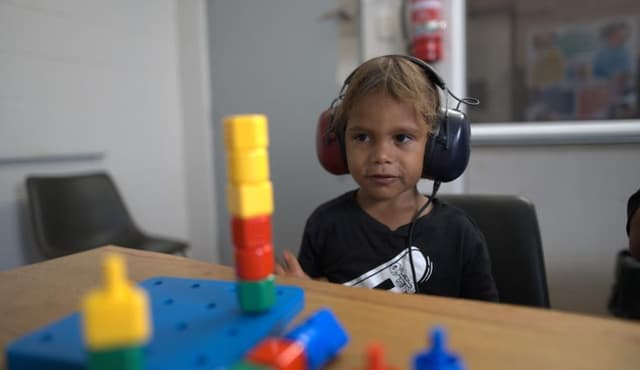Allied Fields
New impact report shows long term value of early childhood support for disadvantaged families

Freya Lucas
Jun 24, 2022
Save
The Benevolent Society launched a new national Early Years Impact Measurement Framework yesterday, which measures the long-term social and economic value of early childhood integrated support services for disadvantaged families.
Although there is ample research demonstrating the lifelong impact of social disadvantage and developmental delay in the early years, and a common understanding within the sector around the value of integrated early years service systems of support, there is little evidence which demonstrates that such programs work in practice and make a tangible difference to outcomes. Currently measuring the social and economic value that integrated childhood systems generate in Australia is challenging due to the varied experiences of families and the complex systems required to meet their needs.In order to attract and retain funding to these programs practice-led evidence is needed to inform decision-making at community and systems levels to help future-proof Australians from these problems. The Benevolent Society has risen to the challenge of filling this significant evidentiary gap by working with Social Outcomes to develop a framework that focuses on the outcomes which matter most in terms of social impact for vulnerable families and economic impact for the community more broadly."Without this evidence, there is no robust funding blueprint or cost-benefit analysis to help ensure the best investment decisions are being made to support disadvantaged families in our country, who are the least likely to access the support services available,” Felicia Dingle, Director of Operations, Child Youth and Family Services Queensland said.
Ms Dingle believes the new framework will serve as a foundational template for developing future impact measurement practices and learnings for governments and the sector more comprehensively, with an ultimate goal of demonstrating that there can be significant economic and societal upside when scaled.
While the framework is a step toward measuring and qualifying the positive impact of an integrated early childhood support service, significant work still needs to be done, Social Outcomes Founder and Managing Director Sandy Blackburn added.
"To create a rigorous model that measures the far-reaching impacts of an integrated early childhood support system for children and families experiencing disadvantage, other organisations will need to be involved. Only then can we develop a ground-breaking and deep evidence-based service design that informs investment decisions and improves the lives of these families."
To prove the value of the tool the Benevolent Society used the framework to assess its Early Years Places (EYPs) impact and success in Queensland. The research findings have been released in a 2022 Early Years Place Impact Report and provide preliminary indications of the potential social and economic impact of the EYPs, especially in early childhood development and child safety.
The EYPs are the state's largest integrated early childhood support providers and have assisted disadvantaged families for more than 13 years. The EYPs service more than 4,400 young children and their families each year.
The Benevolent Society calls on governments, philanthropists, and organisations to partner and/or invest in phase two of this process to develop this framework further and coordinate the ongoing collection of longitudinal data sufficient to support a robust cost-benefit analysis of integrated early childhood support. Only then can the national footprint of providers and policymakers understand the true social and economic value of quality, integrated services.
For more information, please visit the Benevolent Society’s website, here.
Don’t miss a thing
Related Articles



















